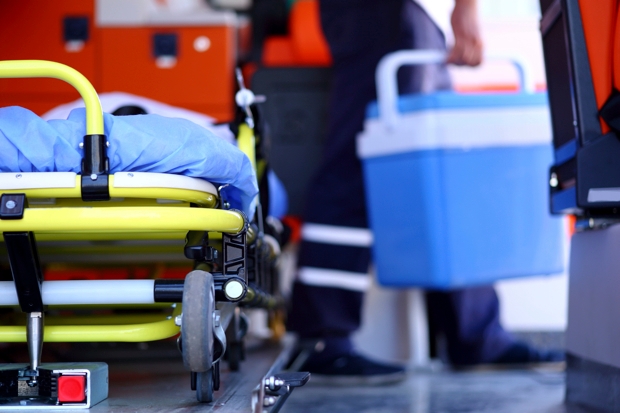A discussion between two medical ethicists on the Today programme this morning ended with them agreeing on one point: whether or not it is right to breed pigs so that their organs can be harvested for transplantation into humans (as the University of California is experimenting with), the first thing we should do in order to solve the shortage of donor organs is to move to a system of ‘presumed consent’, where the organs of dying patients are considered fair game for transplantation unless they have signed a form excluding this.
To leave the pigs for a moment, what is so ethical about presumed consent for human donors? In the Today discussion, Belgium was held up as an example of a country which had increased the availability of donor organs by moving to a system of presumed consent. But no mention was made of a more fundamental reason why Belgian surgeons have a more plentiful supply of organs available than do British surgeons: Belgian drivers kill more than twice as many people, per unit population, as do British ones. To obtain the sometimes happy outcome of a heart, lung or liver transplant it is first necessary for a tragedy to occur. In most cases it will involve a young, healthy person losing their life prematurely – more likely than not in an accident, a road accident especially.
Ever since the world’s first heart transplant was carried out in 1967 transplant surgery has struggled against steadily falling road accident rates in developed countries. In 1967, 7,319 people died on Britain’s roads, compared with 1,775 in 2014. That means more than 5,000 fewer hearts and pairs of lungs potentially to be available for transplant. For transplant surgery this has created a crisis. But of course from the point of view of society as a whole it is anything but a crisis. It is a very happy outcome for the families of the people who have not been killed – even if it is less so for desperately ill people in need of replacement organs.
Presumed consent or not, transplant surgery is always going to run up against this problem. Road deaths will almost certainly continue to fall, as will deaths from other causes among the young. If we want to continue transplanting organs we are going to have to look elsewhere – and that elsewhere is either going to involve manufacturing human parts in the laboratory – or transplanting them from animals. Given that we kill many millions of farm animals each year for food it is hard to see what the general ethical objection is to using animals in this way – unless you are a committed vegetarian.
That leaves only the issue of ‘chimera’ embryos – animals which have been genetically-engineered to include some human genes to make their organs more suitable for human transplant. Admittedly there is a bit of a yuck factor in this. But a pig engineered with a few human genes to give it what is in some ways a human pancreas does not become a human. Its thoughts and emotions will be no more human than that of any other pig.
But if you do have an objection to this, presumed consent isn’t going to solve the problem of organ shortage for long. Eventually, you will have to ask yourself what you would prefer: a gradual winding-down of transplant surgery – or the active promotion of road accidents?







Comments